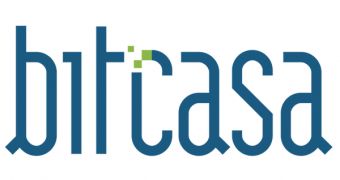The personal cloud storage space is not exactly lacking competition. Dropbox rules the bunch, but there are many other options out there, some with more free storage, some with better privacy options and policies.
Yet there are people, and companies, that believe the space is ripe for the picking. The latest to throw its hat into the ring is Bitcasa, a new cloud storage service that promises unlimited storage for only $10 a month.
The service is not available to all yet, it's launching in private beta soon, but you can sign up to be part of the beta, as soon as there is room.
When it does go live, Bitcasa promises to completely turn the notion of cloud storage on its head. With Bitcasa, cloud storage is not something you bolt on to your computer, it's not something that's also there, it's everything on your computer.
Bitcasa completely takes over your hard drive and syncs everything, in the background. Your drive becomes a simple cache, for the most accessed files to reside on. And it will never become full since you have infinite cloud storage.
Some of the technical details are still scarce, and Bitcasa wants it that way, but the idea is that everything you save, every file on your computer is also in the cloud, it goes beyond file sync, it's something more like drive sync.
Another key aspect is that all of the files in the cloud are encrypted on the device, so Bitcasa has no access to the file themselves. This has been one of Dropbox's major criticisms, it encrypts the files itself, so it has access to anything you sync.
Dropbox does this in order to save space by not storing duplicate files, chances are a lot more people have the exact same Lady Gaga MP3 you have and Dropbox only stores it once.
With client-side encryption this no longer becomes possible. Yet, Bitcasa claims that one of its secrets is that it uses file duplication algorithms to only store one copy of everything. We'll have to wait for the service to launch to see how that works, but, so far, Bitcasa looks like a definite winner.

 14 DAY TRIAL //
14 DAY TRIAL //